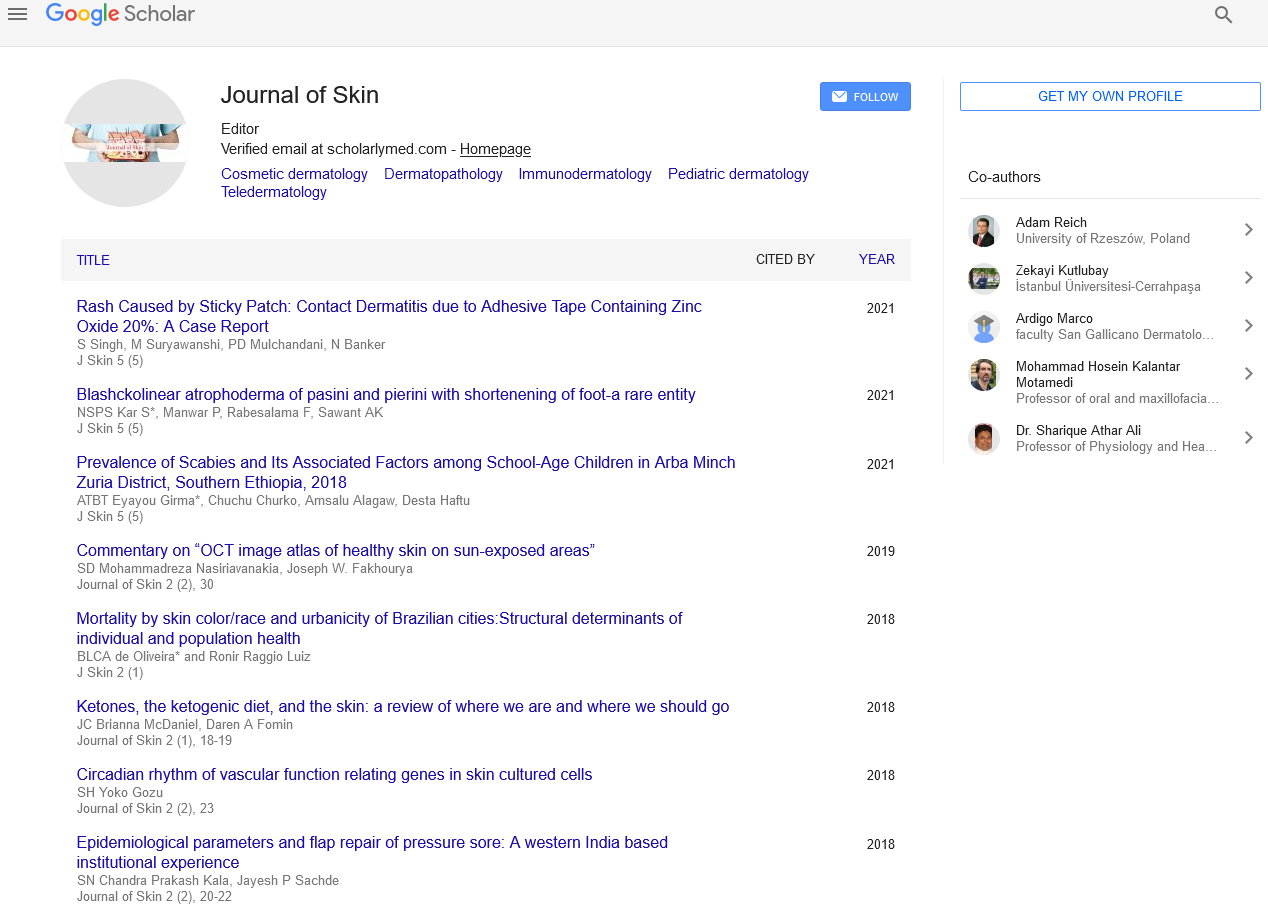
Sign up for email alert when new content gets added: Sign up
Abstract
Wound-Care-2020: Stress and Aging- Emma Coleman- Emma Coleman Clinics, UK
Author(s): Emma ColemanWound-Care-2020: Stress and Aging- Emma Coleman- Emma Coleman Clinics, UK Emma Coleman Emma Coleman Clinics, UK
Stress can create an inflammatory response that destroys the telomeres on your chromosomes. Telomeres are the shoelacelike caps at the end of a chromosome that ultimately determines the longevity of that cell. Each time the cells divide, the telomere length gets shorter until eventually, the cell dies. All humans are destined to experience adversities throughout their lives that are likely to impact their health and quality of life. However, trajectories of health and function in later life can vary significantly depending on the individual. Typical stressors experienced in the context of aging include chronic illnesses, cognitive impairment, psychosocial stress of caregiving or personal losses of people, independence, and financial. However, individuals react very differently to these adversities: some succumb to depression and early death as a result of these adversities, and some continue to lead a life of personal fulfillment despite those restraints. An enzyme called telomerase helps to increase the length of telomeres so this is an important enzyme being researched right now because the length of your telomeres predicts true biological age and the genesis of disease better than any other marker. Any disease associated with aging is related to this length Stress hormones provide energy and focus in the short term, but too much stress over too many years can throw a person's system off-balance. Overloads of stress hormones have been linked to many health problems, including heart disease, high blood pressure, and weakened immune function. For older people already at heightened risk for these illnesses, managing stress is particularly important. Over time, the brain can slowly lose its skills at regulating hormone levels. As a result, older people who feel worried or anxious tend to produce larger amounts of stress hormones, and the alarm doesn't shut down as quickly. According to a study published in the journal Psycho neuro-endocrinology, women are especially susceptible to an overload of stress hormones as they age. The study found that the impact of age on cortisol levels is nearly three times stronger for women than for men 37% of Brits feel stressed for one full day weekly and up to nine days each month with women 17% more likely to experience these feelings than men. There is much evidence to suggest that both acute and chronic stress directly impacts skin’s ageing processes, caused by hypothalamic-pituitaryadrenal axis disruption, leading to neurogenic and inflammatory response triggers at skin level. Additionally, skin actively participates in the body’s stress response. In this article I will define and discuss the different types of stress and ageing, provide evidence to support how physiological stress responses cause telomere shortening and disrupt mitochondrial, mast cell and fibroblast function, and how these changes accelerate specific ageing processes. I will also discuss common signs of stress I see amongst my clients, why and how it is important to spot these, plus considerations for clinic treatment plans. The main, clinical symptoms of skin ageing are wrinkle formation, hyperpigmentation and loss of elasticity and causes can be classified into two categories: Intrinsic- ageing from natural, physiological changes over time, usually genetically predetermined. Extrinsic – influenced by UVA and UVB, chemical and pollution exposure, repetitive muscle movements, diet, sleep and overall health. The modern view of emotional stress encompasses both internal and external factors. I found a couple of useful definitions for the benefit of this article: “Stress is our body’s response to pressures from a situation or life event, if our stress response is activated repeatedly or it persists over time, the effects can result in wear and tear on the body.” Also stress is a particular relationship between the person and the environment, appraised by the person as taxing or exceeding his or her resources, endangering his or her wellbeing. The three most commonly reported UK stress triggers are financial concern, work and health worries. Stress varies largely based on an individual’s perception of what is stressful and their perceived abilities to cope, but when stress exceeds the body’s ability to respond, system damage can result. The classification of stress is two-fold: External Stress – caused by situations arising around us, often beyond our control such as employment or family changes and trauma. Research on stress, inflammation, sex hormones, and aging has achieved a certain level of maturity. Multimodal assessment of the biological determinants of stress and resilience can help identify potential neurobiological mechanisms as targets for intervention to enhance resilience on individual and community levels. Prospective determinants of stress responsivity and resilience for future investigations include neuroendocrine, immunological, neural circuitry, genetic, temperamental, and environmental influences. The field of stress and aging research is on the verge of becoming relevant for dissemination of knowledge about risk and protective factors for late-life mood and cognitive disorders and testing and implementing new preventive interventions in research and in the community care. Internal Stress – where inner thoughts and feelings crowd the mind, leading to feelings of sadness and anxiety, unrealistic expectations, uncertainties and esteem issues.
This work is partly presented at International Conference on Wound Care, Tissue Repair and Regenerative Medicine March 9-10, 2020 held at Edinburgh, Scotland




